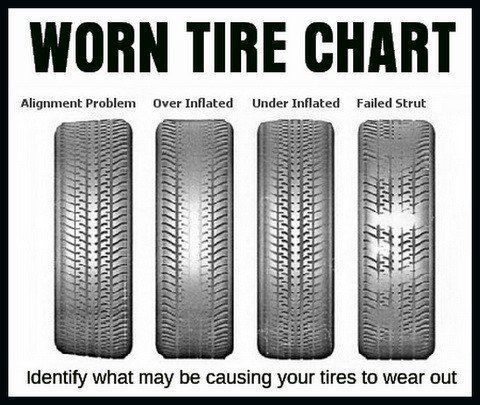
Tires play a crucial role in the overall performance and safety of your vehicle. Proper tire care not only extends their lifespan but also enhances fuel efficiency, improves handling, and reduces the risk of accidents. Neglecting tire maintenance can lead to decreased traction, blowouts, and poor vehicle stability. To ensure your tires last as long as possible and provide you with a smooth and safe ride, follow these essential tire care tips.
1. Regularly Check Tire Pressure
Proper tire pressure is essential for optimal performance. Underinflated tires increase rolling resistance and cause uneven wear, reducing fuel efficiency and tire longevity. On the other hand, overinflated tires can result in a harsher ride and susceptible to damage from road hazards. Check your tire pressure at least once a month using a reliable tire gauge and keep them inflated to the recommended levels specified in your vehicle’s manual.
2. Rotate Your Tires
Tire rotation helps distribute wear evenly across all four tires, promoting extended tread life and ensuring better overall performance. The front and rear tires experience different forces due to weight distribution and turning, which can lead to uneven wear patterns. Regular tire rotations, typically every 5,000-7,500 miles, prevent one or two tires from experiencing excessive wear and ultimately improve tire longevity.
3. Maintain Proper Wheel Alignment
Proper wheel alignment is essential for even tire wear and vehicle stability. Misaligned wheels cause uneven tread wear, reduced fuel efficiency, and poor handling. If you notice your vehicle pulling to one side or feel vibrations in the steering wheel, it may indicate the need for a wheel alignment. Regularly schedule wheel alignments, especially after hitting potholes or curbs, to extend tire life and ensure optimal vehicle performance.
4. Check Tread Depth
Tire tread depth significantly affects traction and grip on the road. As tires wear down, their ability to disperse water and maintain traction decreases, increasing the risk of hydroplaning. Measure your tire tread depth regularly using a penny or a dedicated tread depth gauge. As a rule of thumb, if the tread depth reaches 2/32 of an inch, it’s time to replace your tires. Investing in new tires when the tread wears out is crucial for your safety on the road.
5. Regularly Inspect for Damage
Regularly inspect your tires for cuts, bulges, cracks, or any damage that may compromise their structural integrity. Objects on the road can puncture the tire or cause sidewall damage, leading to potential blowouts. If you notice any signs of damage, have your tires inspected by a professional and either repaired or replaced promptly. Taking immediate action can prevent more extensive damage and ensure your safety on the road.
6. Avoid Overloading
Excessive weight puts a strain on your tires and can lead to premature wear, reduced handling, and increased braking distances. Consult your vehicle’s manual or the tire manufacturer’s specifications to determine the maximum load capacity for your tires. Avoid overloading your vehicle and distribute the weight evenly to prevent unnecessary stress on the tires, which can shorten their lifespan.
7. Drive Responsibly
Your driving habits greatly impact tire wear and longevity. Aggressive driving, such as sudden acceleration, hard braking, and fast cornering, accelerates tire wear. Additionally, hitting potholes, curbs, or driving over speed bumps at high speeds can cause damage to the tires. Drive responsibly, maintain safe speeds, and avoid unnecessary stress on your tires to extend their lifespan.
Conclusion
Proper tire care is essential for maximizing the lifespan of your tires and ensuring your safety on the road. Regularly checking tire pressure, rotating tires, maintaining proper wheel alignment, checking tread depth, inspecting for damage, avoiding overloading, and driving responsibly are all crucial steps to keep your tires in great shape. By following these tire care tips, you can confidently enjoy a smooth, fuel-efficient, and safe ride while preventing the need for premature tire replacements.

